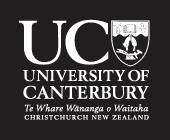Prof Catherine Bishop, Prof S Krumdieck
Applications accepted all year round
About the Project
Hospital-acquired infections (HAI) are the third leading cause of death. “High-touch” surfaces in hospitals, such as door handles and elevator buttons are the source of more than 40% of pathogen transmissions. A game-changing product solution is photocatalytic destruction by a titanium dioxide (TiO2) ceramic finish on the metal fittings. TiO2 is a long-wearing, continuously working, self-cleaning and antimicrobial action (AM) coating posing no risk to human health and no route for microbe resistance.
As part of a New Zealand government funded project, we are working with Koti Technologies, a Christchurch company, to develop antimicrobial coatings for touch surfaces grown by the pulse pressure metallorganic chemical vapour deposition (pp-MOCVD) process developed by the University of Canterbury’s Professor Krumdieck. The performance of the films includes antimicrobial efficacy, wear resistance, cleanability, hydrophobicity and appearance. The performance is related to the chemistry, phase and microstructure of the films, and these traits are developed during processing.
The aim of this project is to develop a modeling tool for pp-MOCVD growth of titania films. It will couple reactor dynamics with microstructural growth models, and it will predict coating performance based on structure-performance relationships determined by experiment. The phenomenological component models will be validated and calibrated with specifically designed experiments and materials analysis. The microstructural modeling will use coupled level set models and phase-field models.
Interested candidates should email Dr Bishop directly with an expression of interest, curriculum vitae, and undergraduate/masters transcripts. Admission to the University is on a rolling basis, and PhD study can begin at any time.
Funding Notes
Full funding for stipend and fees for three years is available immediately.

 Continue with Facebook
Continue with Facebook

